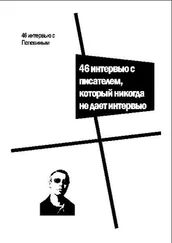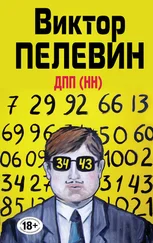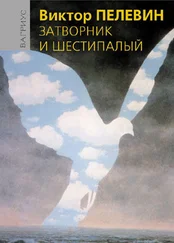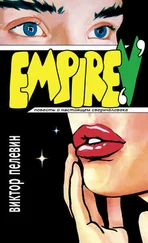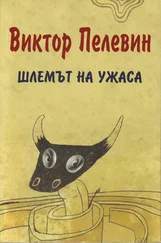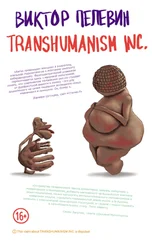Виктор Пелевин - Buddha's Little Finger
Здесь есть возможность читать онлайн «Виктор Пелевин - Buddha's Little Finger» весь текст электронной книги совершенно бесплатно (целиком полную версию без сокращений). В некоторых случаях можно слушать аудио, скачать через торрент в формате fb2 и присутствует краткое содержание. Жанр: Современная проза, на английском языке. Описание произведения, (предисловие) а так же отзывы посетителей доступны на портале библиотеки ЛибКат.
- Название:Buddha's Little Finger
- Автор:
- Жанр:
- Год:неизвестен
- ISBN:нет данных
- Рейтинг книги:5 / 5. Голосов: 1
-
Избранное:Добавить в избранное
- Отзывы:
-
Ваша оценка:
- 100
- 1
- 2
- 3
- 4
- 5
Buddha's Little Finger: краткое содержание, описание и аннотация
Предлагаем к чтению аннотацию, описание, краткое содержание или предисловие (зависит от того, что написал сам автор книги «Buddha's Little Finger»). Если вы не нашли необходимую информацию о книге — напишите в комментариях, мы постараемся отыскать её.
Buddha's Little Finger — читать онлайн бесплатно полную книгу (весь текст) целиком
Ниже представлен текст книги, разбитый по страницам. Система сохранения места последней прочитанной страницы, позволяет с удобством читать онлайн бесплатно книгу «Buddha's Little Finger», без необходимости каждый раз заново искать на чём Вы остановились. Поставьте закладку, и сможете в любой момент перейти на страницу, на которой закончили чтение.
Интервал:
Закладка:
‘Tell me,’ he said, turning to Kawabata, ‘what could that star on the helmet mean? I suppose it’s a symbol of some sort?’
‘Oh yes,’ said Kawabata. ‘It’s a symbol, and a very ancient one. It’s one of the emblems of the Order of the October Star.’
Serdyuk chortled.
‘What kind of order’s that?’ he asked. ‘One they gave to the milkmaids in the ancient world?’
Kawabata gave him a long look, and the corner of his mouth turned up in an answering smile.
‘No,’ he said. ‘This order has never been awarded by anyone to anyone. Certain people have simply realized that they are entitled to wear it. Or rather that they had always been entitled to wear it.’
‘But what is it for?’
‘There is nothing that it could be for.’
‘The world’s full of idiots, all right,’ Serdyuk said vehemently.
Kawabata slammed the sword back into its scabbard. The air was suddenly thick with embarrassment.
‘You’re joking,’ said Serdyuk, instinctively trying to smooth things over. You might as well have said the Order of the Red labour Banner.’
‘I have never heard of… that decoration,’ said Kawabata. ‘The Order of the Yellow Flag certainly does exist, but that’s from a quite different area. And why do you think I’m joking? I very rarely joke. And when I do, I give warning by laughing softly.’
‘I’m sorry if I said something wrong,’ said Serdyuk. ‘It’s just that I’m drunk.’
Kawabata shrugged and handed the sword back to the salesman.
‘Are you taking it?’ the salesman asked.
‘Not this one,’ said Kawabata. ‘Wrap up that one over there, the small one.’
While Kawabata was paying, Serdyuk went out on to the street. He had a terrible feeling that he’d done something irredeemably stupid, but he soon felt calmer once he’d looked up a few times at the damp spring stars that had appeared in the sky. Then his eye was caught once again by the splayed metal rays of the window gratings and he thought sadly that when it came down to it, Russia was a land of the rising sun too - if only because the sun had never really risen over it yet. He decided this was an observation he could share with Kawabata, but by the time Kawabata emerged from the pavilion with a slim parcel tucked under his arm, this thought had already been forgotten, its place taken instead by an all-consuming desire for a drink.
Kawabata seemed to take in the situation at a glance. Moving several steps away from the doorway, he put his bundle down beside the dark, wet trunk of a tree growing out of a hole in the asphalt and said:
‘You know, of course, that in Japan we warm our sake before we drink it. And naturally, nobody would ever dream of drinking it straight from the bottle - that would totally contradict the spirit of the ritual. And drinking on the street is deeply dishonourable. But there is a certain ancient form which allows us to do this without losing face. It is called the «horseman’s halt». It could also be translated as the «horseman’s rest».’
Keeping his eyes fixed on Serdyuk’s face, Kawabata drew the bottle out of his pocket.
‘According to tradition,’ he continued, ‘the great poet Ari-vara Narihira was once dispatched as hunting ambassador to the province of Ise. The road was long, and in those times they travelled on horseback, so the journey took many days. It was summer. Narihira was travelling with a group of friends, and his exalted soul was filled with feelings of sadness and love. When the horsemen grew weary, they would dismount and refresh themselves with simple food and a few mouthfuls of sake. In order not to attract bandits, they lit no fire and drank the sake cold as they recited to each other marvellous verses about what they had seen on the way and what was in their hearts. And then they would set off again…’
Kawabata twisted open the screw-cap.
‘That is where the tradition comes from. When you drink sake In this fashion, you are supposed to think of the men of old, and then these thoughts should gradually merge into that radiant sadness that is born in your heart when you are aware of the fragility of this world and at the same time captivated by its beauty. So let us…’
‘With pleasure,’ said Serdyuk, reaching out for the bottle.
‘Not so fast,’ said Kawabata, jerking it away from him. ‘This is the first time you have taken part in this ritual, so allow me to explain the sequence of the actions involved and their signifi(ance. Do as I do and I will explain to you the symbolic meaning of what is happening.’
Kawabata set down the bottle beside his bundle.
‘First of all we must tether our horses,’ he said.
He tugged at the tree’s lowest branch to test its strength and then wove his hands around it as though he were winding a string on to it. Serdyuk realized he was supposed to do the same. Reaching up to a branch a little higher, he roughly repeated Kawabata’s manipulations under his watchful gaze.
‘No,’ said Kawabata, ‘he’s uncomfortable like that.’
‘Who?’ asked Serdyuk.
‘Your horse. You’ve tethered him too high. How will he graze? Remember, it’s not just you that’s resting, it’s your faithful companion as well’
An expression of puzzlement appeared on Serdyuk’s face, and Kawabata sighed.
‘You must understand,’ he said patiently, ‘that in performing this ritual we are transported back, as it were, to the Heian era. At present we are riding through the summer countryside to the province of Ise. I ask you, please, retie the bridle.’
Serdyuk decided it would be best not to argue. He waved his hands over the upper branch and then wove them around the lower one.
‘That’s much better,’ said Kawabata. ‘And now we should compose verses about what we see around us.’
He closed his eyes and waited in silence for several seconds, then pronounced a long, guttural phrase in which Serdyuk was unable to detect either rhythm or rhyme.
‘That’s more or less about what we’ve been saying,’ he explained. ‘About invisible horses nibbling at invisible grass and about how it’s far more real than this asphalt which, in essence, does not exist. But in general it’s all built on word-play. Now it’s your turn.’
Serdyuk suddenly felt miserable.
‘I really don’t know what to say,’ he said in an apologetic tone. ‘I don’t write poems, I don’t even like them very much. And who needs words with the stars up in the sky?’
‘Oh,’ Kawabata exclaimed, ‘magnificent! Magnificent! How right you are! Only thirty-two syllables, but worth an entire book!’
He took a step backwards and bowed twice.
‘And how good that I recited my verse first!’ he said. ‘After you I wouldn’t have dared to do it! But where did you learn to write tanka?’
‘Oh, around,’ Serdyuk said evasively.
Kawabata held out the bottle to him. Serdyuk took several large gulps and handed it back. Kawabata also applied himself eagerly, drinking in small sips, holding his free hand behind him - there was obviously some ritual meaning to the gesture, but to be on the safe side Serdyuk avoided asking any questions. While Kawabata was drinking, he lit a cigarette. Two or three drags restored his self-confidence and he even began to feel slightly ashamed of his recent state of timidity.
‘And by the way, about the horse,’ he said. ‘I didn’t actually tether him too high. It’s just that recently I’ve been getting tired very quickly, and I take halts of up to three days at a time. That’s why he has a long bridle. Otherwise he’d eat all the grass the first day…’
Kawabata’s face changed. He bowed once more, walked off to one side and began unfastening the buttons of his jacket over his stomach.
Читать дальшеИнтервал:
Закладка:
Похожие книги на «Buddha's Little Finger»
Представляем Вашему вниманию похожие книги на «Buddha's Little Finger» списком для выбора. Мы отобрали схожую по названию и смыслу литературу в надежде предоставить читателям больше вариантов отыскать новые, интересные, ещё непрочитанные произведения.
Обсуждение, отзывы о книге «Buddha's Little Finger» и просто собственные мнения читателей. Оставьте ваши комментарии, напишите, что Вы думаете о произведении, его смысле или главных героях. Укажите что конкретно понравилось, а что нет, и почему Вы так считаете.

